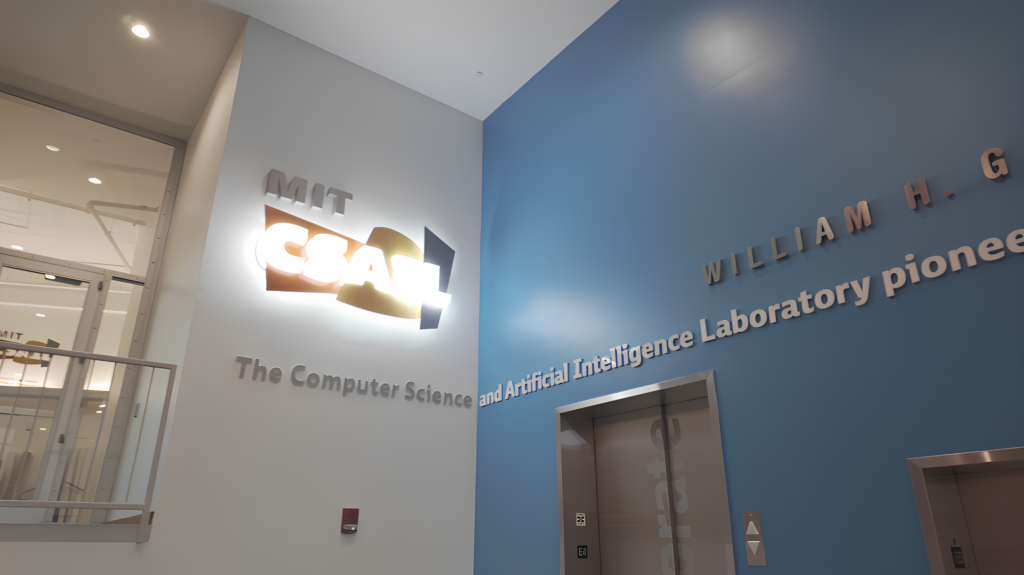Ten Hottest Trends in AI for 2025—and What They Mean for Today’s High School Students
Related Topics: AI Camps, Machine Learning summer camp, AI Trends and AI in Education, STEM Camp
Table of Contents
How AI is Reshaping Careers, College Majors, an Opportunities
In 2025, artificial intelligence (AI) is no longer just a buzzword—it’s becoming a deeply embedded part of how we live, work, and learn. From personalized AI companions to breakthroughs in quantum computing, the AI industry is evolving fast—and students who start preparing now will be the ones leading tomorrow.
So, what does this mean for today’s high schoolers? What skills should they build, what majors should they consider, and what kind of programs actually help them explore AI meaningfully—beyond surface-level exposure?
Ten Hottest AI Trends to Watch in 2025
The artificial intelligence (AI) landscape is evolving at an unprecedented pace in 2025. From autonomous agents to quantum-powered algorithms, AI is moving beyond labs and startups and becoming embedded in education, healthcare, finance, and creative industries. Below are ten of the most impactful AI trends unfolding this year—each signaling major shifts in how we live, work, and learn.
1. Agentic AI: The Rise of Autonomous Digital Agents
In 2025, AI isn’t just answering your questions—it’s doing your work. “Agentic AI” refers to autonomous systems that can initiate actions, plan steps, and complete tasks independently. Think of AI-powered personal assistants that book your travel, reply to emails, and manage your digital calendar—without human prompts.
🔍 Use Case: OpenAI’s Auto-GPT and Google’s Gemini agents are already piloting this behavior in business operations, streamlining workflows for customer service and content generation.
📈 Future Outlook: Agentic systems will become integral to knowledge work, changing expectations in finance, legal, and project management sectors.
2. Multimodal AI: One Model, Many Inputs
Multimodal models process and reason through a mix of inputs—text, images, audio, and even video—in real time. Tools like GPT-4 with Vision and Google’s Gemini allow users to upload images and get contextual insights, bridging visual and textual intelligence.
🔍 Use Case: Healthcare imaging diagnostics, educational learning platforms, and advanced search engines.
📈 Future Outlook: Expect exponential growth in AI tools that interact more like humans—capable of recognizing both what you say and what you see.
3. Quantum AI: Supercomputing Meets Machine Learning
Quantum computing is set to revolutionize AI training speed and security. While still in its early days, 2025 sees major breakthroughs in using quantum algorithms to solve optimization problems in seconds—tasks that would take classical computers years.
🔍 Use Case: Protein folding, drug discovery, supply chain optimization
📈 Future Outlook: Students interested in AI + physics will see the rise of quantum-AI engineering majors and careers.
4. AI Cybersecurity: Defending Against AI-Powered Threats
As AI becomes more powerful, so do cyber threats. In 2025, AI is both the threat and the solution. Companies are using generative AI to spot deepfakes, detect unusual user behavior, and identify algorithm manipulation in real time.
🔍 Use Case: Banking fraud detection, election misinformation monitoring, smart firewalls
📈 Future Outlook: Cybersecurity will demand hybrid skills in AI, ethics, and data forensics.
5. Generative AI 2.0: From Assistants to Autonomous Creators
No longer limited to chatbots or image generators, generative AI tools can now produce full-length videos, build entire websites from prompts, and simulate live 3D environments. They’re becoming creators, not just tools.
🔍 Use Case: Marketing content, indie game design, education simulation tools
📈 Future Outlook: Creative tech jobs will shift from “designer” to “AI prompt strategist” and “model curator.”
6. AI in Education: Personalized, but Controversial
AI-powered tutors like Khanmigo and Synthesis School platforms offer hyper-personalized learning—adjusting content in real time to match a student’s pace and understanding. But concerns around bias, data privacy, and AI-replacing educators persist.
🔍 Use Case: SAT/ACT tutoring, language learning, individualized feedback
📈 Future Outlook: New jobs like “AI curriculum integrator” or “edtech learning engineer” will emerge.
7. Responsible AI: Ethics, Transparency, and AI Governance
Governments and companies are under pressure to make AI explainable, non-biased, and compliant with evolving global regulations (like the EU AI Act and U.S. Executive Order on AI Safety).
🔍 Use Case: AI audits, fairness testing, ethical model training
📈 Future Outlook: Expect pre-college students to begin encountering AI ethics modules even in STEM camps and AP CS courses.
8. Human-AI Collaboration: Augmentation over Replacement
Rather than replacing humans, AI is increasingly serving as a co-pilot. In coding, writing, design, and even legal review, AI is the assistant that speeds up workflows, checks errors, and enhances human creativity.
🔍 Use Case: GitHub Copilot, GrammarlyGO, Adobe Firefly
📈 Future Outlook: Success will require students to blend domain knowledge + AI tool fluency.
9. AI in Daily Life: Invisible, Yet Everywhere
From smart refrigerators that recommend recipes to wearable devices that monitor stress and recommend breathing exercises, AI is embedded into daily routines.
🔍 Use Case: Smart home systems, wellness tracking, grocery delivery algorithms
📈 Future Outlook: UX designers, behavioral data analysts, and AI-integrated product managers will be in high demand.
10. AI Job Specialization: Not One Career—But Many
“AI Engineer” is no longer a singular title. In 2025, you’ll find prompt engineers, AI auditors, LLM alignment specialists, synthetic data curators, and more. The AI workforce is becoming as layered as the tech itself.
🔍 Use Case: From policy and legal work to MLOps (machine learning operations)
📈 Future Outlook: High school students will benefit from early exposure to multiple subfields—not just general “AI.”
🚀 One Smart Starting Point: AI Camp for teens
For students looking to explore artificial intelligence through real-world applications, the Camp for Gifted Youth (CGY)—held on the UC Berkeley campus—offers an immersive summer experience that blends STEM education, entrepreneurship, and collaborative innovation.
Camp for Gifted Youth
This AI camp is designed for ambitious middle and high school students who are ready to explore the real-world applications of artificial intelligence. By combining project-based learning, startup planning, and technical workshops, the machine learning summer camp equips students with both practical skills and future-oriented insights—making it one of the most valuable summer learning opportunities available today.
Who It’s For: Students entering Grades 6–11 who are curious about AI, programming, and real-world innovation (no prior experience required)
Location: University of California, Berkeley (UC Berkeley)
Dates: July 27 – August 9, 2025 (2-week, residential program)

🎓 What Does This Mean for Current High School Students?
The rapid evolution of artificial intelligence (AI) is not only transforming industries but also reshaping educational pathways for high school students. Understanding these changes is crucial for students aiming to align their academic and career goals with the future landscape.
📘 Emerging AI-Focused Academic Programs
Universities worldwide are recognizing the importance of AI and are introducing specialized programs to cater to this demand:
University of Pennsylvania: Launched an “AI for Business” major, blending technical AI skills with business acumen and ethics, preparing students for leadership roles in an AI-driven economy.
University of Wisconsin–Eau Claire: Set to offer new majors in artificial intelligence starting in fall 2025, aiming to equip students with AI competencies relevant across various industries.
Carnegie Mellon University: Continues to lead with its dedicated AI undergraduate program, emphasizing interdisciplinary learning and research opportunities.
- Cornell University: Cornell launched a brand-new Minor in Artificial Intelligence, offering undergraduates across disciplines—from computer science to biology and engineering—a structured pathway to gain foundational and advanced knowledge in AI.
🧭 Guidance for High School Students
Given these developments, high school students should consider the following steps to prepare for an AI-influenced future:
Explore Interdisciplinary Learning: Seek opportunities that combine AI with other fields such as business, healthcare, or engineering to develop a versatile skill set and align with real-world applications of machine learning.
Engage in AI-Focused Programs: Participate in immersive summer experiences like an AI camp or machine learning summer camp that offer hands-on exposure to the latest AI tools and technologies.
Develop Ethical Understanding: Study the ethical implications of AI, including data privacy, algorithmic bias, and the broader societal impact of automation and decision-making algorithms.
Stay Informed: Keep up with emerging AI trends and how they influence college majors and future careers—especially as universities begin to offer new AI-related programs and interdisciplinary pathways.
By proactively engaging with AI education and its applications, students can position themselves at the forefront of this transformative field.
Start Building the Mindset, Not Just the Résumé
As artificial intelligence continues to shape the world around us, the students who thrive won’t just be those who know how to use AI—but those who understand how to think with it. Programs like the AI Camp at UC Berkeley don’t just teach machine learning theory—they give students the chance to build, test, and apply machine learning in real life, while collaborating with peers, designing startup solutions, and finding their voice as creators and communicators.
For many students, it’s not just their first AI camp—it’s their first time realizing they belong in the future they used to only read about.
By submitting this form, you are consenting to receive marketing emails from: IvyMax, 41111 Mission Blvd., Suite 200, Fremont, CA, 94539, https://ivymax.com/. You can revoke your consent to receive emails at any time by using the SafeUnsubscribe® link, found at the bottom of every email. Emails are serviced by Constant Contact
Interested in our program?
Complete the form below and we’ll quickly respond with detailed information, and answers to all your questions!

